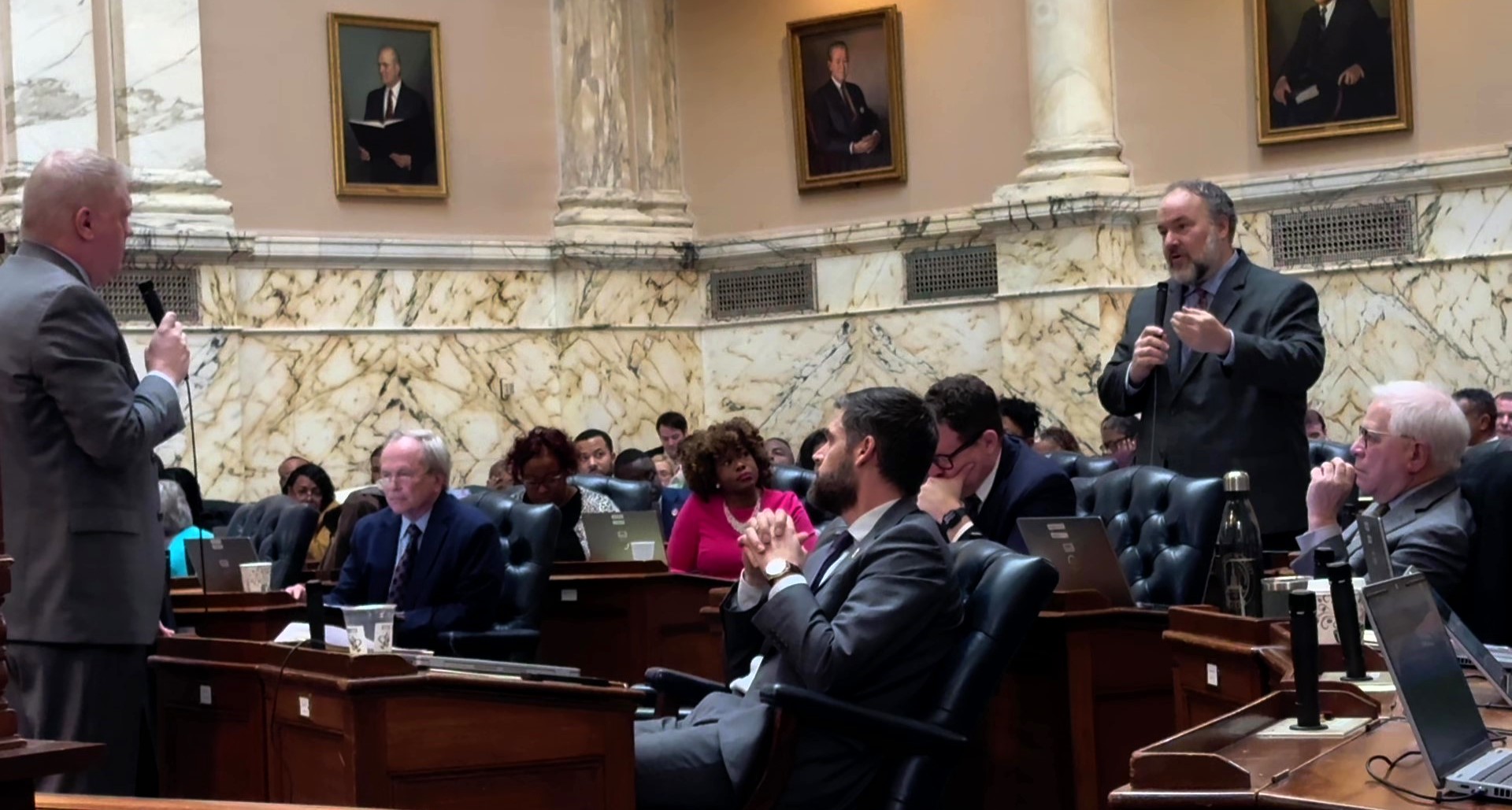Senate and House Take Different Approaches to Paid Family Medical Leave

Key committees in the Maryland Senate and the House of Delegates moved forward with a measure that would establish a statewide paid family and medical leave program, but proposed different paths to get there.
The Time to Care Act would guarantee workers 12 weeks of paid leave following childbirth or to take care of themselves or a family member experiencing serious health issues. Depending on their salary, Marylanders — who worked either part-time or full-time for at least 680 hours in the last year — would receive a partial wage replacement of between $50 and $1,000 a week.
The program would work by establishing a statewide family leave insurance program, which would include contributions from both workers and employers. However, self-employed individuals would not be required to contribute to the fund.
Lawmakers and advocates have spent years trying to pass a statewide paid family leave program, and so having the bills voted out of committee marked a big step forward.
The Senate Finance Committee approved a bill on Wednesday that would allow Marylanders to start claiming benefits in 2025 — a nine-month delay from the original bill.
On the other hand, the House Economic Matters Committee approved a bill on Tuesday that instead establishes a commission to work out the specifics of a statewide paid family leave program, with the goal to implement the program in 2023 so that Marylanders can benefit no later than June 2024.
Under the House’s amended bill, the commission would make recommendations on employment eligibility, when contributions should start, the cost-sharing formula between employers and employees and any other aspects that the commission deems relevant.
“We’ve had a pandemic and a multitude of other things happen, including record inflation [and high] gas prices,” Economic Matters Committee Chair C.T. Wilson (D-Charles), a co-sponsor of the bill who introduced the amendment, told his colleagues on Tuesday. “We wanted to make sure that…we knew exactly how much we have in the fund, the number of people it’s going to cover…versus just mandating something because some of that data is outdated.”
Wilson underscored that lawmakers are not obligated to endorse what the commission recommends.
Advocates have continued to press for a bill that would establish a paid leave program this year. Myles Hicks, the campaign manager for the Time to Care Coalition, took issue with the program implementation dates laid out in the House bill, stating that they are subject to change depending on what the commission recommends.
“We understand the intent of a commission to study paid family and medical leave, but we believe there have been studies over the past ten years showing that paid family leave would benefit Marylanders,” Hicks said. “This is the year to create a strong paid leave program.”
Instead of a commission, the Senate cross-file would require the Maryland Department of Labor to conduct a study to determine the cost of maintaining such a program, but still would codify a statewide paid family leave program into law.
But Wilson contended that a paid family leave program will still be established under the House version of the bill.
“This will happen — it’s just a matter of when,” he continued. He promised that this was not a “dilatory tactic,” but to ensure that the program is feasible and successful. “This is just for our information and knowledge so that we can move forward next year with alacrity, determination and in the right direction,” Wilson said.
The Senate committee also amended the measure from requiring an equal split of contributions from workers and employers to a 75-25 split, with workers contributing more to the fund. The amended bill now also allows employers to deny paid leave to workers if it “will cause a demonstrated hardship to the employer.”
Hicks said he is happy to see a measure establishing 12 weeks of paid family and medical leave for all Marylanders pass out of the Senate Finance Committee, but said that there is still room to make the worker and employer split in contributions to the fund more equal.
Wilson also said that such an uneven split would not be viable for Marylanders.
The Senate had an initial debate on its version of the Time to Care Act on the floor on Wednesday morning and is expected to vote on the measure Thursday.




 Creative Commons Attribution
Creative Commons Attribution